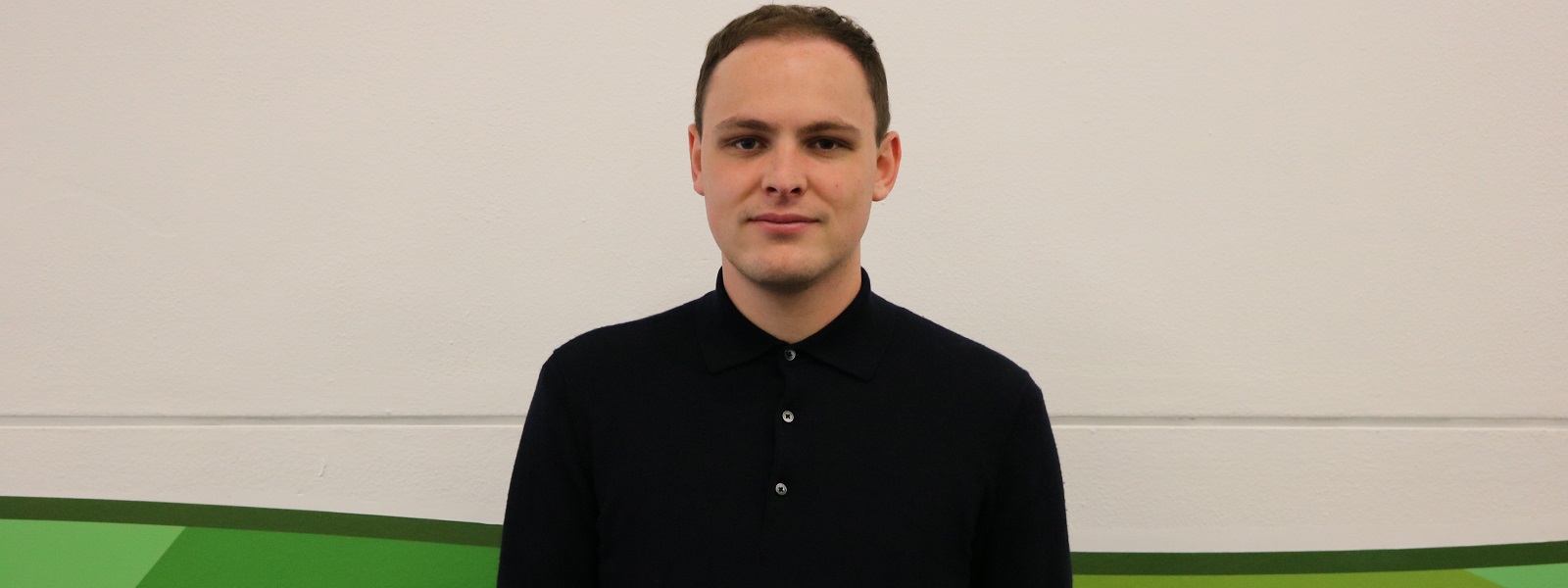Douglas Jack joined the School of Law as a Teaching Associate in 2019. A former student, Douglas now co-ordinates the 1st Year Law & Society module, as well as Human Rights Protection in the UK on the LLM. Douglas is also 1st Year Programme Lead and the Deputy Director in Teaching & Learning.
Tell us a little about your career so far...
I’m a relative newcomer to the world of full-time work! I suppose my current career began when I decided to study Law at the University of Strathclyde after leaving school. I graduated with an LLB in Scots Law in 2015, before completing an LLM in Human Rights Law also at Strathclyde. If readers are noticing a trend here, they might not be surprised to hear that I then decided to remain at Strathclyde to undertake a PhD – which considers Scottish devolution and the protection of Convention rights. I intend to submit by August 2020. Throughout that time I had opportunities to teach various classes including Public Law and Human Rights Law, both as a tutor and as a lecturer. From October 2018 to January 2019, I undertook an internship at the Scottish Government as part of the Scottish Graduate School of Social Science internship programme. My role at the Scottish Government was to produce a report on international freedom of information legislation with focus on approaches to the designation of private bodies. The report helped to inform the Scottish Government in their plans to extend the Freedom of Information (Scotland) Act 2002. My experiences as a student and as a part-time tutor/lecturer at Strathclyde led me to apply for the current position which brings me up to today.
What has been the most memorable moment of your career to date?
Probably one of my first ever lectures. I remember being extremely nervous beforehand but growing into it and realising that I was enjoying it mid-way through. There were lots of questions at the end which either meant that I wasn’t making any sense or that they had been interested in what I was saying. I’m going to believe it was the latter!
What sparked your interest in Law?
Like many law students, my decision to study law came from an interest in history and politics as a child. However, it wasn’t until I started my LLB that I began to appreciate the diversity of subjects that the study of Law encompassed. I quickly found that I had a preference for Public law and legal theory over other subjects. What I loved (and still love) about law is that it is grounded in and inextricably linked to broader questions of theory, history and politics.
What is your role within the school?
I am a Teaching Fellow in Human Rights Law. This means that I help to deliver several courses at undergraduate and masters’ levels. This academic year, I am the class leader for the third-year undergraduate Human Rights Law elective and will also be lecturing in Public Law 2. I will also take tutorials in these two courses as well as in Public Law 1, Legal Methods and English Criminal Law and Evidence. Additionally, I will be taking seminars in several of the LLM in Human Rights Law modules.
Beyond my teaching duties, I am responsible for the supervision of students working on their honours dissertations and work to support the law school staff and students in my roles as the Law School Library Rep, BA subject lead in Law and research coordinator for the Centre for the Study of Human Rights Law.
What current trends do you see influencing your field?
I am interested in questions of human rights and popular legitimacy, a topic that, despite taking a relative backseat as a result of Brexit, is still bubbling underneath the surface.
A recent high-profile intervention came from former Supreme Court Justice Lord Sumption, who argued in his Reith Lectures, that human rights protections had contributed to “law’s expanding empire” whereby judicial decisions were encroaching more and more on political decision making. In addition, the UK Government has questioned the accuracy and legitimacy of the UN Special Rapporteur’s Report on extreme poverty and human rights in the United Kingdom.
On the other hand, in Scotland, there are plans to significantly enhance the protection of human rights. Notable examples include proposals to incorporate the UNCRC into Scots Law, recognition of social security as a human right in the Social Security Act 2018 and plans to develop a new human rights framework in Scotland that will recognise economic, social, cultural and environmental rights.
Tell us about any research you are currently involved in.
As I said before, most of my research energies are currently devoted to completing my PhD. However, I am currently co-working on a paper that considers privatisation and international freedom of information legislation and another that considers whether the rules of standing for human rights in Scotland should be broadened to support the enforcement of the proposed new human rights laws.
What initially attracted you to the University of Strathclyde?
It should be clear to anyone that has read the above passages that I consider the University of Strathclyde to be a fantastic place to learn and (more recently) to work. When applying to study Law I was attracted to the University’s prestige and its location, as well as the fact that I could benefit from its commitment to widening access - I wouldn’t have gained a place otherwise! As a student, I found the staff to be inspiring and supportive. Again, I wouldn’t be in my current position if they hadn’t encouraged me to apply and to believe that I am capable of performing the role.
